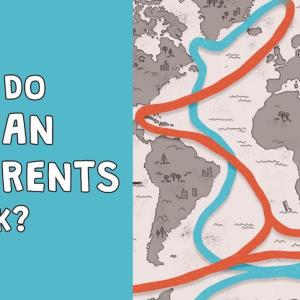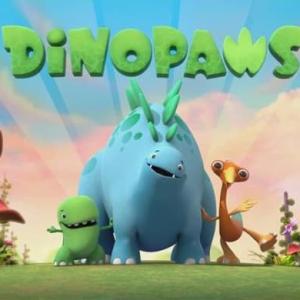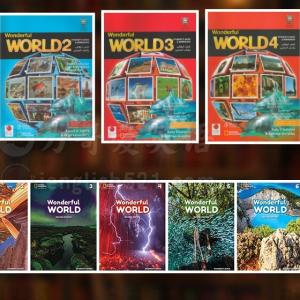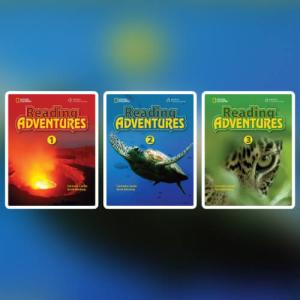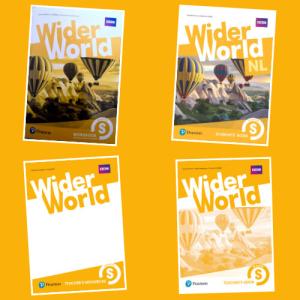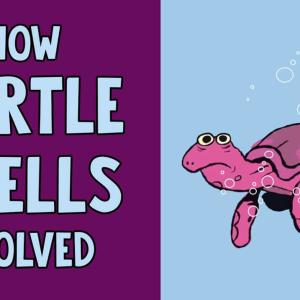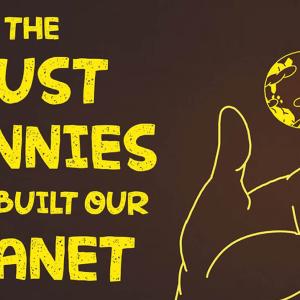
维克多·维斯科沃(Victor Vescovo)正在领导首次载人远征,前往世界五大洋中每一个最深的地方。在与TED科学策展人大卫·比尔洛(David Biello)的对话中,维克多讨论了推动探索的技术——设计用于承受特殊环境的钛制潜水器——并在他的印度洋海底之旅的视频中展示了一个从未见过的生物。
中英文对照字幕文章源自:力哥爱英语(ienglish521.com)力哥爱英语-https://ienglish521.com/2684.html
David Biello: So Victor, what have you been up to? 文章源自:力哥爱英语(ienglish521.com)力哥爱英语-https://ienglish521.com/2684.html
大卫·比尔洛(VB):维克多,你最近在忙什么?文章源自:力哥爱英语(ienglish521.com)力哥爱英语-https://ienglish521.com/2684.html
Victor Vescovo: That's the bottom of the Atlantic Ocean, and I guess I read too much Jules Verne as a young boy, and so for the last four years I've led a team to design and build what is now the most advanced and deepest diving submersible on the planet, and I have the ability to personally pilot it too. So this was us in December of last year, for the first time -- the bottom of the Atlantic Ocean. 文章源自:力哥爱英语(ienglish521.com)力哥爱英语-https://ienglish521.com/2684.html
维克多·维斯科沃(VV):这是大西洋的底部,可能是因为年轻时读了太多的儒勒·凡尔纳的作品,所以在过去四年,我带领了一支团队设计并建造了现在世界上最先进并且可以下潜最深的潜水器,并且我个人也有驾驶它的能力。所以这是我们在去年12月时,第一次到达大西洋海底。文章源自:力哥爱英语(ienglish521.com)力哥爱英语-https://ienglish521.com/2684.html
DB: And nobody's seen that before right? That's just you.文章源自:力哥爱英语(ienglish521.com)力哥爱英语-https://ienglish521.com/2684.html
DB:之前没有人到过那里吗?除了你。文章源自:力哥爱英语(ienglish521.com)力哥爱英语-https://ienglish521.com/2684.html
VV: No. Well, now everybody else. 文章源自:力哥爱英语(ienglish521.com)力哥爱英语-https://ienglish521.com/2684.html
VV:没有,现在每个人都看到了。文章源自:力哥爱英语(ienglish521.com)力哥爱英语-https://ienglish521.com/2684.html
DB: Who does that? Like -- 文章源自:力哥爱英语(ienglish521.com)力哥爱英语-https://ienglish521.com/2684.html
DB:谁做到的?比如——文章源自:力哥爱英语(ienglish521.com)力哥爱英语-https://ienglish521.com/2684.html
VV:Well, I think everyone has seen the developments in the last 10, 15 years. You have a bunch of people that have the means to explore outer space, like SpaceX or Blue Origin -- those guys -- and we're going the other direction. So it's a wonderful era of private individuals spending their resources to develop technologies that can take us to places that have never been explored before, and the oceans of the world is -- it's almost a cliché to say it's 70 percent of our entire planet, and of that, 95 percent is unexplored. So what we're trying to do with our expedition is to build and prove out a submersible that can go to any point on the bottom of the planet to explore the 60 percent of this planet that is still unexplored. 文章源自:力哥爱英语(ienglish521.com)力哥爱英语-https://ienglish521.com/2684.html
VV:我想大家都看到了过去10年、15年的发展。有一群人拥有了探索外太空的方法,比如SpaceX或者BlueOrigin——那些人——那么我们就选择另外的方向。这是一个非凡的时代,对个人来说,他们可以花费资源来发展科技,把我们带去之前从未被探索过的地方,并且海洋世界是——用一句陈词滥调的说法就是,海洋占据了地球70%的面积,并且它的95%都是未被探索过的。所以我们和探险队正在尝试的就是建造并且证明可以到达这个地球底部任何一点的潜水艇,去探索地球60%仍未被探索的地方。文章源自:力哥爱英语(ienglish521.com)力哥爱英语-https://ienglish521.com/2684.html
DB: You need a pretty cool tool to do that, right? 文章源自:力哥爱英语(ienglish521.com)力哥爱英语-https://ienglish521.com/2684.html
DB:你需要一个非常酷的工具来完成这个,对吗?文章源自:力哥爱英语(ienglish521.com)力哥爱英语-https://ienglish521.com/2684.html
VV: Right. Now the tool is the submarine, the Limiting Factor. It's a state-of-the-art vessel supported by the support ship, the Pressure Drop. It has a two-person titanium sphere, 90 millimeters-thick, that keeps it at one atmosphere, and it has the ability to dive repeatedly down to the very deepest point of the ocean. 文章源自:力哥爱英语(ienglish521.com)力哥爱英语-https://ienglish521.com/2684.html
VV:是的。这个工具就是潜水器,叫做LimitingFactor.它是一艘最先进的船,由支援舰PressureDrop提供支持。它有一个容纳两人的钛球体,90毫米厚,使它维持在一个标准大气压,同时它有着反复下潜到海洋最深点的能力。文章源自:力哥爱英语(ienglish521.com)力哥爱英语-https://ienglish521.com/2684.html
DB: So like the SpaceX of ocean exploration? 文章源自:力哥爱英语(ienglish521.com)力哥爱英语-https://ienglish521.com/2684.html
DB:所以就像是海洋探险界的SpaceX?文章源自:力哥爱英语(ienglish521.com)力哥爱英语-https://ienglish521.com/2684.html
VV: Yeah, it's kind of the SpaceX of ocean exploration, but I pilot my own vehicles. 文章源自:力哥爱英语(ienglish521.com)力哥爱英语-https://ienglish521.com/2684.html
VV:是,类似海洋探险界的SpaceX,但是我驾驶我自己的交通工具。
DB: Are you going to take Elon or…?
DB:那你会带上Elon或者……?
VV: Yeah, I could take someone down there. So, Elon, if you're listening, I'll give you a ride in mine if you give me a ride in yours.
VV:是,我可以带些人下去那里。所以,Elon,如果你在听,我可以让你搭个便车,如果你也让我搭个你的便车。
DB: So tell us what it's like down there. I mean, we're talking about a place where the pressure is so intense that it's like putting an Eiffel Tower on your toe.
DB:向我们描述一下海底的样子吧。我们讨论的地方压力如此之大,那感觉就像是将一座埃菲尔铁塔放在你的脚尖上。
VV: It's more than that. It's about 16,000 psi. So the issue is that we have this titanium sphere that allows us to go down to these extreme depths and come up repeatedly. That's never been done before. The Challenger Deep has been dived twice, once in 1960 and once in 2012 by James Cameron, and they went down and came back up and those were experimental craft. This is the first commercially certified submersible that can go up and down thousands of times with two people, including a scientist. We're very proud that we took down the deepest-diving British citizen in history just three weeks ago, Dr. Alan Jamieson of Newcastle University who was down with us on the Java Trench.
VV:比那严重多了,大约是每平方英寸一万六千磅。关键在于我们的这个钛球体可以让我们反复下潜到极限的深度并且升上来。这之前从来没有人做到过。极限潜水曾经有过两次尝试,分别在1960年和2012年由詹姆斯·卡梅隆实现,他们下降并且返回,使用的是实验性的船。这是第一次商业认证的潜水器,可以搭载两人上升并且下降数千次,其中包括了一名科学家。我们非常骄傲,因为三周前我们拿下了历史上下潜最深的英国人的记录,纽卡斯尔大学的艾伦•杰米逊博士和我们一起下降到爪哇海沟。
DB: So, not too much freaks you out, is what I'm guessing.
DB:我猜,这不会让你感到害怕。
VV: Well, it's a lot different to go diving. If you're claustrophobic, you do not want to be in the submarine. We go down quite a distance and the missions typically last eight to nine hours in a confined space. It's very different from the career I had previously which was mountain climbing where you're in open spaces, the wind is whipping, it's very cold. This is the opposite. It's much more technical. It's much more about precision in using the instruments and troubleshooting anything that can go wrong. But if something really goes wrong in the submersible, you're not going to know it.
VV:这和潜水太不一样了。如果你有幽闭恐惧症,你并不想在潜水器里面。我们需要下降很长一段距离,而任务通常在一个狭窄的空间里持续八到九个小时。这和我之前的职业都非常不一样,比如攀岩,你在一个开阔的空间,风呼啸而过,非常冷。潜水则完全相反,技术含量更高。它涉及更多的是精确地使用仪器并且排解一切可能的故障。但如果在潜水器里真有什么出错了,你也不会知道了。
DB: So you're afraid of leaks is what you're saying.
DB:所以你是指你担心漏水。
VV: Leaks are not good, but if it's a leak that's happening, it's not that bad because if it was really bad you wouldn't know it, again, but -- you know, fire in the capsule, that wouldn't be good either, but it's actually a very safe submersible. I like to say I don't trust a lot of things in life, but I do trust titanium, I trust math and I trust finite element analysis, which is how you figure out whether or not things like this can survive these extraordinary pressures and conditions.
VV:漏水的确不是什么好事,但是如果发生了,也不算太糟糕,因为真正糟糕的是你什么都不知道,但是——比如小容器里发生火情,同样也不是什么好事,但是这实际上是个非常安全的潜水器。我更愿意说我并不相信生活里的很多事情,但是我确实相信钛,我相信数学,并且我相信有限元分析,能帮你算出是否存在这样的东西,可以在极限压力和条件下存活。
DB: And that sphere is so perfectly machined, right? This is a truly unique craft.
DB:所以这个球体是一个非常完美的机器,是吗?这确实是一个独一无二的工艺。
VV: That was the real trick -- is actually building a titanium sphere that was accurate to within .1 percent of machine. Titanium is a hard metal to work and a lot of people haven't figured it out, but we were very fortunate. Our extraordinary team was able to make an almost perfect sphere, which when you're subjecting something to pressure, that's the strongest geometry you can have. When I'm in the submersible and that hatch closes, I'm confident that I'm going to go down and come back up.
VV:这里真正的技术是——制造一个钛球体,精确到小于0.1%的加工精度。钛是一种需要处理的硬质金属,很多人都没解决这个问题,但我们非常幸运。我们卓越的团队能够制造出近乎于完美的球体,当你对东西施加压力时,这是你能有的最牢固的几何结构。当我在潜水器里关闭舱门时,我坚信我将会下去并返回来。
DB: And that's the thing you double-check -- that the hatch is closed?
DB:这是你需要再三检查的事情——舱门有没有关闭?
VV: There are only two rules in diving a submarine. Number one is close the hatch securely. Number two is go back to rule number one.
VV:使用潜水器有两条原则。第一是安全关闭舱门。第二是看第一条。
DB: Alright so, Atlantic Ocean: check. Southern Ocean: check.
DB:那么,大西洋:完成。南大洋:完成。
VV: No one has ever dived the Southern Ocean before. I know why. It's really, really hostile. The weather is awful. The word collision comes to mind. But we did that one, yes. Glad that's over.
VV:在这之前没有人潜入过南大洋。我知道原因。它的确很不友好。天气非常的糟糕。让人想到“相撞”这个词。但是我们做到了,是的。非常高兴我们完成了。
DB: Yeah --
DB:是的——
VV: Thank you.
VV:谢谢。
DB: It's like you're racing through it. And now the Indian Ocean, as Kelly mentioned.
DB:就像在赛跑一样。像凯利提到的,现在是印度洋。
VV: Yeah, that was three weeks ago. We were fortunate enough to actually solve the mystery. If someone had asked me three weeks ago, "What is the deepest point in the Indian Ocean?" -- no one really knew. There were two candidates, one off of Western Australia and one in the Java Trench. We have this wonderful ship with a brilliant sonar. We mapped both of them. We sent landers down to the bottom and verified. It's actually in the center portion of the Java Trench, which is where no one thought it was. In fact, every time we've completed one of our major dives, we have to run off to Wikipedia and change it because it's completely wrong.
VV:是的,那是三周前。我们非常幸运地真正解开了这个谜团。如果有人在三周前问我,“印度洋最深的点在哪里?”没有人真正清楚。有两个备选的地点是,一个在西澳大利亚附近,另一个在爪哇海沟里。我们有一艘非常棒的船和非常出色的声纳。我们将两个点都绘制了出来。我们把着陆器送下底部去确认。那个点实际上是在爪哇海沟的中央部分,是一个过去没人认为是最深处的点。事实上,每次我们完成主要的下潜时,我们都不得不赶紧去维基百科更改一下,因为百科上面完全是错误的。
DB: So it probably takes longer to get down there than the time you're able to spend down there?
DB:那么你下去的时间比你在下面待的时间更长些吗?
VV: No, we actually spend quite a bit of time. I have four days of oxygen supply in the vessel. If I'm down there for four days, something's gone so wrong I'm probably not going to use it, but it's about three hours down to the deepest part of the ocean and then we can spend usually three or four hours and then another three hours up. So you don't want to stay in there for more than 10 or 11 hours. It can get a little tight.
VV:没有,事实上我们在下面待了挺长时间的。我们给船舱准备了四天的氧气供量。如果我去下面四天,发生什么差错我可能就用不到它了,但下降到海洋最深的部位大概需要三个小时,然后我们通常花三到四个小时在那里,然后再用3个小时返回上升。所以你不会想要待在里面超过10到11个小时,会觉得有点憋闷。
DB: Alright, so the bottom of the Indian Ocean. And this is something that no one besides you has ever seen before --
DB:好的,所以印度洋的底部也去过了。这是除了你以外没有人见过的景象——
VV: This is actually imagery from one of our robotic landers. On the bottom right you can actually see a robust assfish -- that's what it's actually called.
VV:这是从我们其中一个机器人着陆器传送的图像。在底部右边你还可以看见一只强壮的深鼬鱼——这就是它本来的名字。
But you can see from the left a creature that's never been seen before. It's actually a bottom-dwelling jellyfish called a stalked ascidian, and none of them have ever looked like this before. It actually has a small child at the bottom of its stalk, and it just drifted across beautifully. So every single dive we have gone on, even though we're only down there for a couple of hours, we have found three or four new species because these are places that have been isolated for billions of years and no human being has ever been down there to film them or take samples. And so this is extraordinary for us --
但是你可以从左边看见一种从来没有见过的生物。它其实是一种居住在海底的水母,叫做跟踪海鞘,这种形态十分罕见。其实在它的肉茎下面有一个小水母,它飘过的样子非常美。所以我们进行的每一次下潜,尽管我们只在下面待上几个小时,却发现了三到四种新的物种,因为这些地方已经隔离了数十亿年,人类从来没有到达过这里去拍摄它们或者取样。这就是我们的非凡之处——
So what we are hoping -- the main objective of our mission is to build this tool. This tool is a door, because with this tool, we'll be able to make more of them potentially and take scientists down to do thousands of dives, to open that door to exploration and find things that we had no idea even existed.
所以我们希望的是——我们的主要目的是打造这个工具。这个工具就是一扇门,因为有了这个工具,我们能够发展壮大,一次又一次带科学家下去,打开这扇门来进行勘探,发现我们甚至想象不到的生物。
DB: And so more people have been to space than the bottom of the ocean. You're one of three. You're going to up that number, you're going to give it away.
DB:所以去过宇宙的人比去过海底的人多。你是三个人中的一员。你将会增加这个人数,你将会把这个工具分享出去。
VV: Yeah, three people have dived to the bottom of the Pacific Ocean. The USS Trieste in 1960 with two individuals. James Cameron in 2012 with his Deep Sea Challenger -- thank you, Jim, great sub. This is a third-generation technology. We're not only going to try and go down, actually in two weeks, but we're going to try and do it multiple times, which has never been done before. If we can do that, we'll have proven the technology and that door will not just go open, it will stay open.
VV:是的,有三个人下潜到了太平洋海底。1960年美国的里雅斯特号带着两个人。2012年詹姆斯·卡梅隆和他的深海挑战号——谢谢你,詹姆斯,非常棒。这是第三代的技术。实际上在接下来的两周内,我们不但会试着下潜,我们还会多尝试几次,这是以前从来没有被尝试过的。如果我们能够做到,我们将会证明这个技术以及那扇门不但会打开,它将永远敞开。
DB: Fantastic. Good luck.
DB:太了不起了。祝你好运。
VV: Thank you very much.
VV:谢谢。
DB: Thank you.
DB:谢谢。
VV: Thank you all.
VV:谢谢大家。




